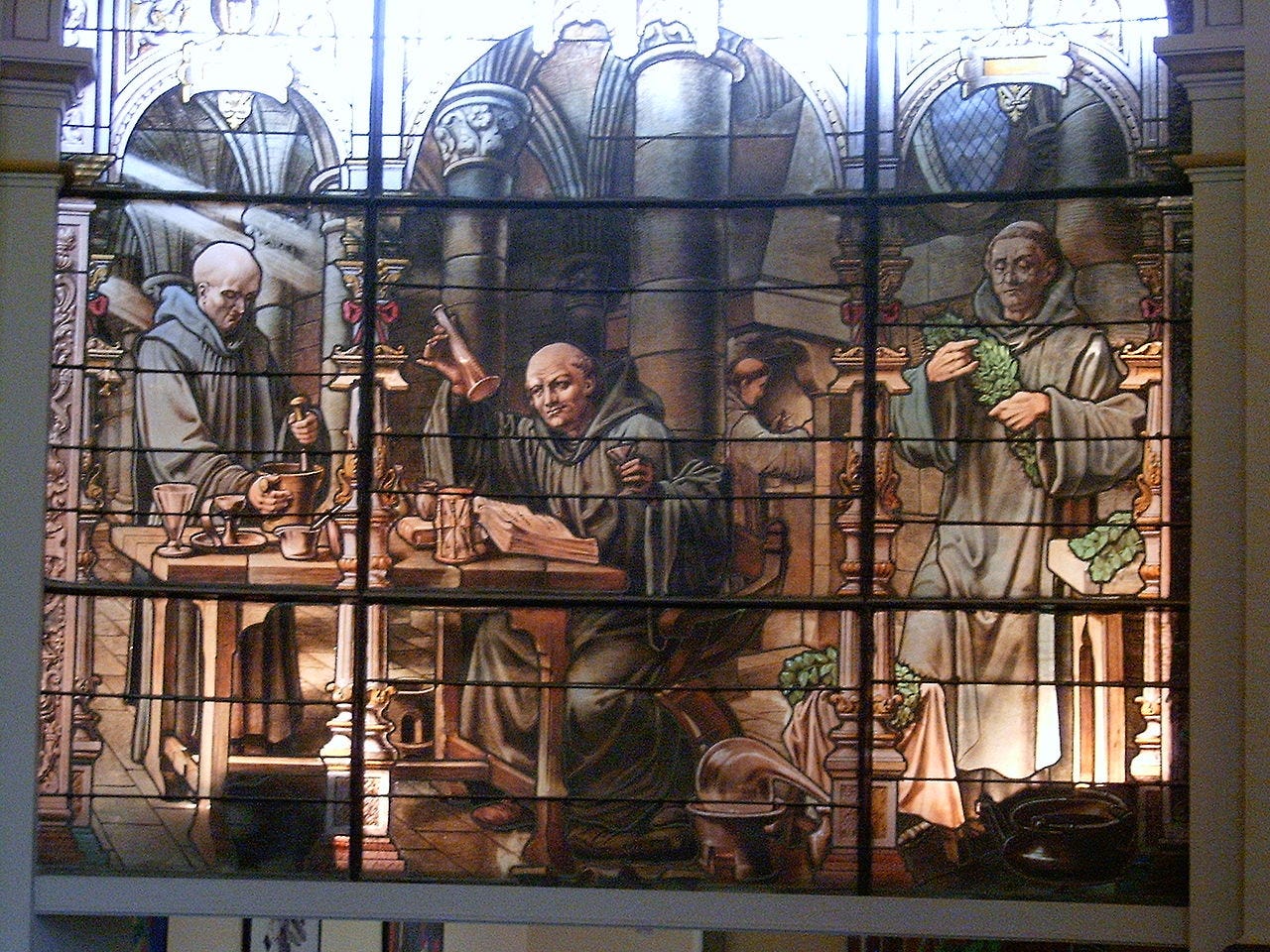Quick Sip: Benedictine
So did monks actually make this stuff?
You may have noticed, in your near-month of seeing the bottle of Benedictine in your home bar, that it shares a name with an order of monks. And you might then have wondered, given the penchant of monestaries to make some incredible beer to this day, did they make this stuff too?
Quick answer: yes, kind of. Longer answer…
From a monastery by a merchant
Benedictine, unlike many European liqueurs, actually has a very well-documented history that seems to be accurate. Namely, we know the actual inventor: a wine merchant in France named Alexander Le Grand. A bit of a (very late) Renaissance man (he also collected art), he was always looking for his big break. In 1863, he found it in a massive 300-year-old book in his family library. That book was from the Benedictine abbey in Fecamp, which looks like a lovely place to visit on the northern French coast.
Side note: if you enjoy this blog you’d likely enjoy playing Pentiment, which involves an abbey that has a similarly-dubious founding story as Fecamp and is really just a great game.
It detailed a recipe of dubious origins for an elixir concocted from 27 herbs and spices that Le Grand set about recreating. So it seems highly-likely that the idea for the liqueur, at least, is actually derived from Benedictine monks in the north of France. However…
Probably not as much as they’d like you to think
The real genius of the brand is not that Le Grand recreated an old recipe, it’s that he (probably) made up an even better history involving a single Renaissance-era monk that made the elixir for a Pope and received a direct benediction for his trouble. Literally none of that was ever likely to have happened, but it made for a great story.
And it also made for great art, which Le Grand commissioned in spades both for marketing purposes and to adorn his massive palace. Look at this!
In the late 19th century, that kind of grounding in the deep Renaissance was a great marketing ploy and is almost certainly the reason that you can still buy Benedictine today. The monks were never involved with the brand, and they certainly aren’t involved today.
Booze, like everything, is really all about the marketing and always has been.


